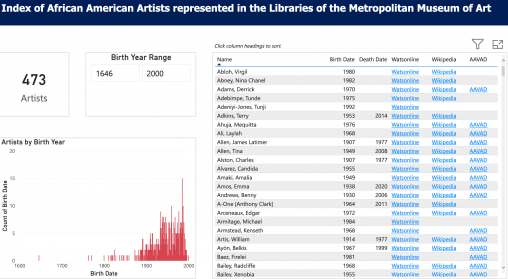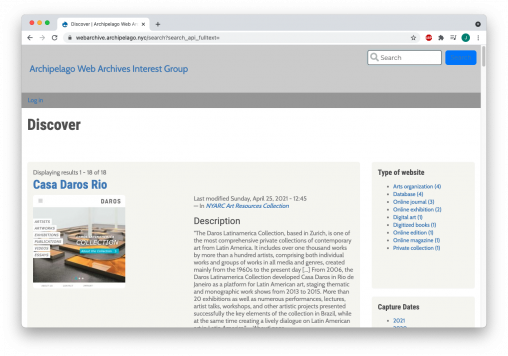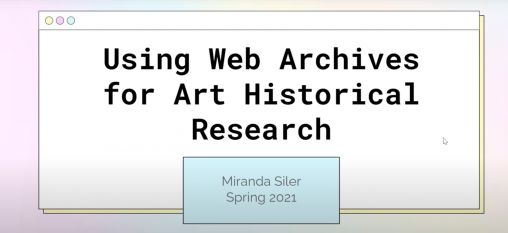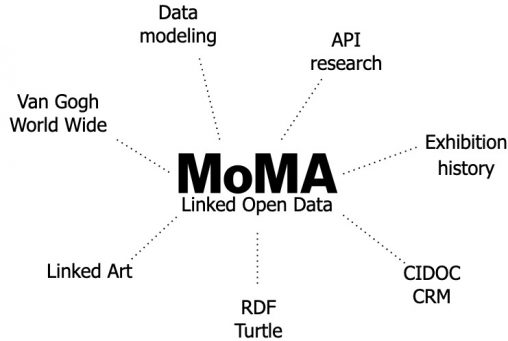Page 13 of 33
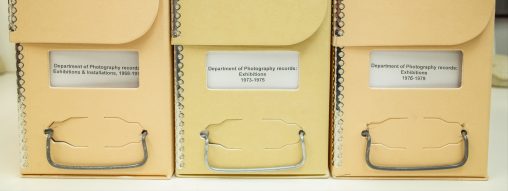
During my time as the Pratt Fellow in the Brooklyn Museum Archives I worked on processing and completing a finding aid for one of the most utilized collections that is currently also the most challenging to access. This collection comprises the bulk of the institution’s visual representation, the Department of Photography records [PHO]. As part of processing the collection, I had to extract information about the collection from Microsoft Access and migrate it to ArchivesSpace. My poster presentation will showcase some of my experiences while completing this project.
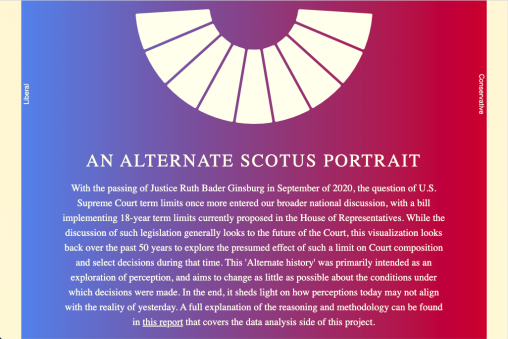
This project presents and reflects on the application of an alternate history of the U.S. Supreme Court, built from established ideological measurements and tenure data. The implementation of an 18-year term limit for Justices starting in 1970 is explored through case studies of five notable court decisions.
Diane has created a 12-city geospatial study of income distribution. This project displays median household income reported by the Census Bureau in major Metropolitan Statistical Areas using choropleth maps and design strategies to tell the story of income inequality in different cities in the US.
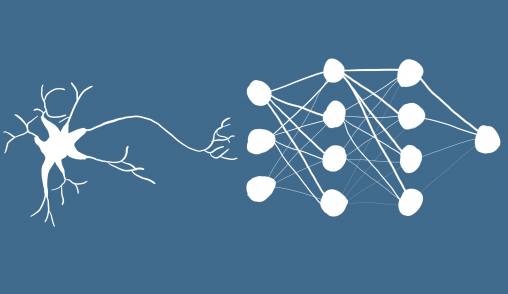
This presentation illustrates the connections between the development of AI and modern neuroscience for a novice audience. I believe by studying these two multidisciplinary topics, we will gain a mindful understanding of how we learn, develop ways for encoding for context and biases, and be closer positioned to true artificial general intelligence.
Proposal for a digital toolkit aimed at youth delegates in NYC’s Participatory Budgeting process, in support of youth civic engagement. The toolkit reflects Connected Learning principles to encourage youth participation, and supports public librarians who volunteer as facilitators and make their branches “home bases” for youth committee meetings and collaboration.

NYPL obtained an enormous collection of digital materials on CD-R, and implemented a batch transfer process to ingest the materials. The batch transfer process obscured the success rate of the transfers; I analyzed metadata about the transferred materials to determine the success rate and improve the process.
Through a review of trends in the current literature on the topic, I explore community archives as an alternative to traditional archival practice. Ultimately, I argue for a reconceptualization of community archives as part of the archival continuum rather than as traditional or mainstream archives’ binary opposite.
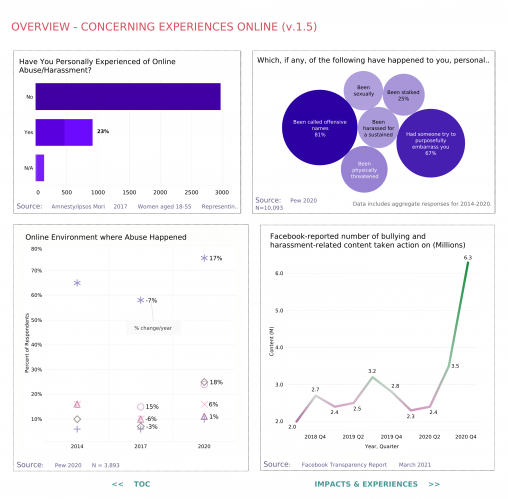
Using Tableau Public and a series of datasets, this dashboard uniquely examines the phenomenon of concerning experiences online, with a feminist analytical framework. Gender dimensions are highlighted throughout, and gaps in available information is discussed. It is part of a larger series on online violence against women in politics.

This project discusses the development of an educational conversation agent supporting an initiative I developed called WESTAND, standing for We Emerge Stronger Together And Never Defenseless. The initiative and the agent serves to increase the accessibility of bystander intervention training–offered at no cost by some non-profit organizations but with limited capacity or in B2B settings.

This map, made in Carto, is an exploration of the relationship between public space and public housing in NYC. By examining the area and frequency of these dynamics within Community Districts, I illustrate the stark differences in NYC’s realized development priorities, highlighting impact on a hyperlocal scale in novel ways.
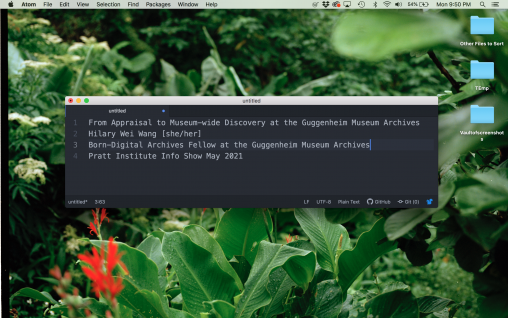
This presentation will showcase my work as the 2020-2021 Born-Digital Archives Fellow at the Guggenheim Museum Archives. It will highlight the project evolution of appraising a backlog of curatorial records to uploading exhibition assets to a digital asset management system for museum-wide discovery.
This presentation addresses ethical issues concerning youth participation within the process of selecting for children’s collections. It examines current practices in the Collection Development/Selection Policies of school libraries nationwide through the lens of children’s rights (defined by the UN Convention of the Child) and proposes youth-inclusive approaches.
This presentation introduces some primary research paradigms with an emphasis on the UX field. By introducing the philosophical assumptions behind those paradigms, this presentation also introduces a way to evaluate a research design.

